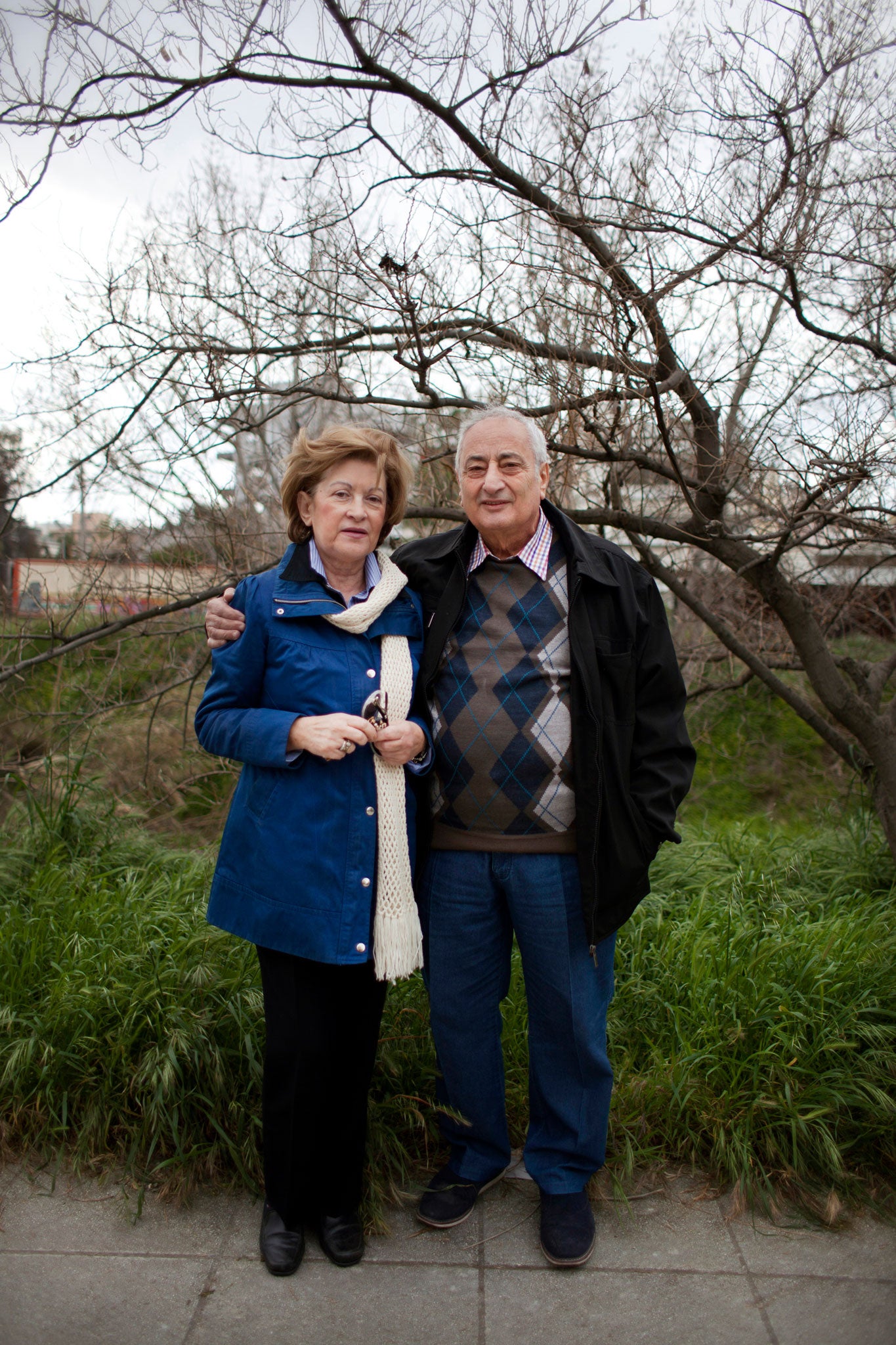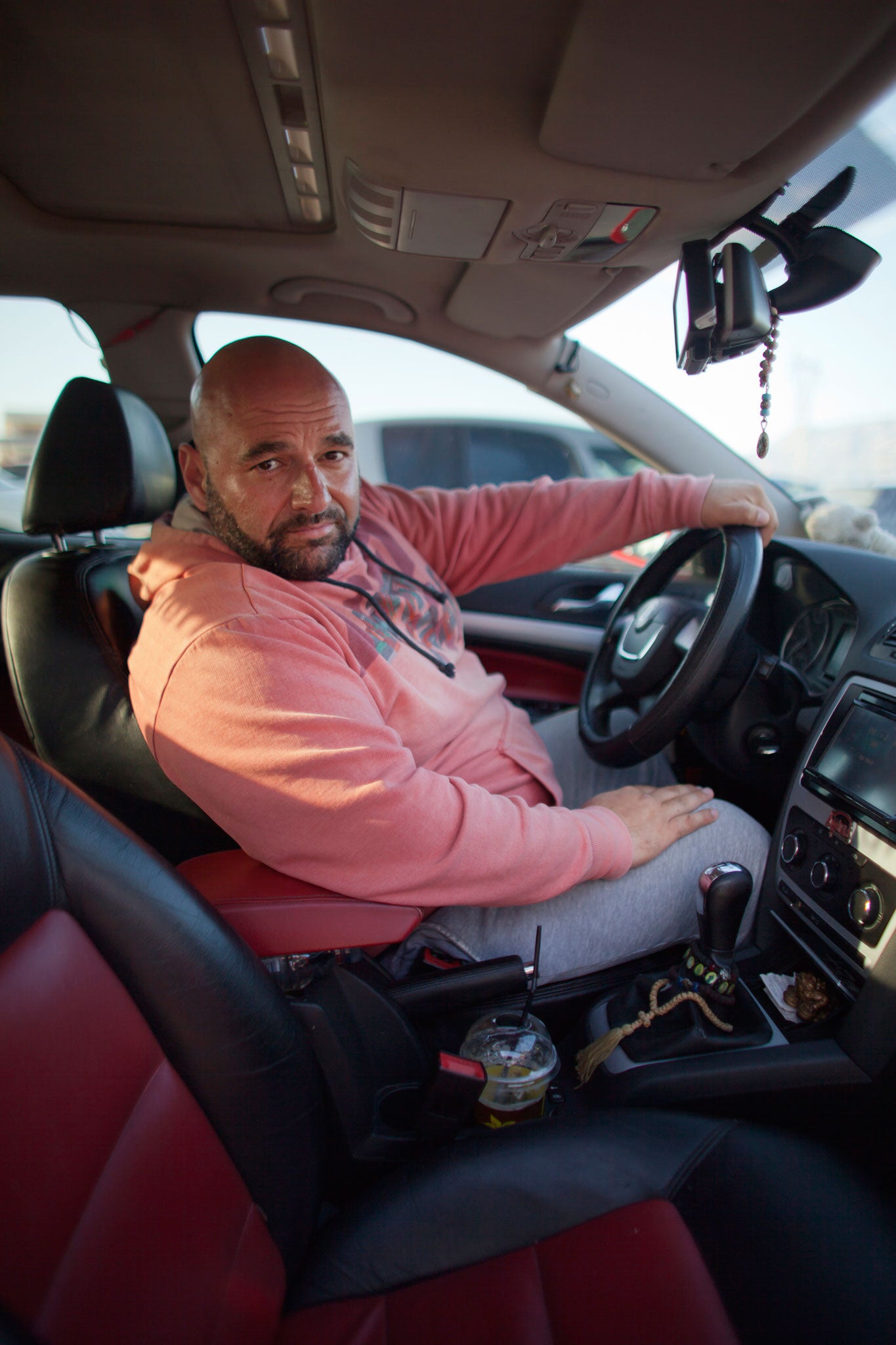How do Greek voters feel about Syriza's backtracking on its anti-austerity pledge?
Here, five Greeks from different backgrounds tell us what they expect from Syriza's charismatic leader Alexis Tsipras - and what they think of him

Your support helps us to tell the story
From reproductive rights to climate change to Big Tech, The Independent is on the ground when the story is developing. Whether it's investigating the financials of Elon Musk's pro-Trump PAC or producing our latest documentary, 'The A Word', which shines a light on the American women fighting for reproductive rights, we know how important it is to parse out the facts from the messaging.
At such a critical moment in US history, we need reporters on the ground. Your donation allows us to keep sending journalists to speak to both sides of the story.
The Independent is trusted by Americans across the entire political spectrum. And unlike many other quality news outlets, we choose not to lock Americans out of our reporting and analysis with paywalls. We believe quality journalism should be available to everyone, paid for by those who can afford it.
Your support makes all the difference.Despite the uphill battle faced by Greece's new government, Syriza, to strike a balance between the demands of the country's international creditors and its voters, it still, remarkably, enjoys wide domestic support across party lines.
While most Greeks would say the government has climbed down from its initial pledges to scrap Greece's bailout agreements and the harsh austerity measures attached to them, they still believe that if any party can bring change, it's Syriza. Most recent polls suggest its approval rate has soared to 45 per cent – a leap from the 36 per cent of the vote it won in the 25 January election. Its rise in popularity is all the more remarkable given that just a few years ago, the party had been confined to the political fringe.
Despite Greece's dire financial situation and the spectre of a withdrawal from the euro zone returning to the fore, people appear more optimistic than ever. Syriza's rhetoric about restoring dignity has resonated with a nation humiliated by five years of harsh austerity that has led to a 25 per cent reduction in the size of its economy, and a dizzying unemployment rate of one in four.
Greeks appear resigned to a fate of economic hardship in the years to come, but are pinning their hopes on the country's flamboyant finance minister, Yanis Varoufakis, and its tieless leader, Alexis Tsipras. To Greeks, they represent the spirit of change they are clamouring for, by challenging the terms imposed by the country's creditors in exchange for providing €240bn in rescue loans. Yet not everyone is on board: big business dreads what the radical government will do next, while voters on both the far right and left think they are no different than previous ruling parties.
Here, five Greeks from different backgrounds tell us what they expect from Syriza's charismatic leader – and what they think of him.
The working mother
Ioanna Poyiantzi, 32
A part-time film editor, Poyiantzi is married, has a son, and lives in Athens' historic Thiseion district
"In the past five years there's been a huge change in my life: there has not been enough work to go round and fees have dropped to the tune of 50 per cent in my line of work. I got married in 2011 and became a mother, which made things even more difficult. I am often without work for up to three months.
"My husband, a film director, is currently unemployed. My son, who is three-and-a-half, attends a state-run kindergarten – though he would have done that even without the crisis. My main concern is whether things will still be as bad when he turns 18.
"I never used to vote, but I voted for Syriza as they offer hope. They won't be able to fulfil all their promises but I expect them not to allow things to get any worse. They have character, and have not been corrupted by power. I truly believe they want to do the things they promised. They are young and, for the time being, I trust them. I could never trust any of the previous governments.
"The Greek people are not to blame: two parties monopolised power and we had to choose between them, but they basically stood for the same things. I believe in democracy and I don't believe their governments were democratic in the proper sense.
"I want Tsipras to be who he says he is and avoid the corruption that comes with power. The first signs are positive. He's making an effort and that's good enough for me. My message to Syriza is to rock the casbah – the song they used during their victory rally."
The retired taverna owner
Dimitris Pikounis, 75

Pikounis (pictured above) lives with his wife in the coastal suburb of Paleo Faliro, Athens
"My life has changed drastically in the past five years. I had a taverna for 35 years but in 2010 the business nosedived by 50 per cent. It had been a thriving place and on Sundays we'd had trouble fitting in customers, but people couldn't afford to eat out any more; 2011, in particular, was a nightmare. That was the year we shut, and I took my pension.
"I have since had a reduction in my pension – but thank God our health coverage has not changed yet. I'm 75, I'm done, but I worry very much for my two children and four grandchildren, who are university students. My daughter is 50 years old and a lawyer. My son is 45 and is involved with IT.
"I always used to vote for New Democracy [Greece's conservative party, which had been in power before Syriza]. And there was a time when I voted for Pasok [the socialist party] as well. But I regret voting for those parties now, even though I can't deny that between 2005 and 2007 we were better off. But things just spiralled out of control. Each family now has between one and three people unemployed. There is misery all around us.
"I have no complaints about Europe: whether for their own selfish reasons or not, they're trying to help us. Alexis [Tsipras] is our hope now. So far I've seen nothing, but he's making an effort. Only time will show what he can do. The way things stand now, he is the only hope for the country and our grandchildren."
The Golden Dawn voter
Tasos Papioannou, 42

A taxi driver in the southern Greek town of Corinth, Papioannou (pictured above) lives on his own, but has a long-time girlfriend. He is a member of the far-right Golden Dawn party
"Tsipras fooled many Greeks but not me. He went abroad telling his puppet masters one thing then came back and told the Greek people something else. He is keeping the bailout agreements but baptising them with a different name. We're still taking orders from other countries. Where is our democracy? Where are our labour laws? They've all been abolished. We have to tell the EU, Nato and IMF to get out.
"I worked for 16 years as a table manager in a casino. Once the IMF came, I left my job because I realised what awaited us. I knew what the IMF stands for and knew about the corruption in Greece. I knew that the EU and the IMF would bring us to our knees in order to exploit our natural resources. I had a back-up: I had a taxi. If I didn't have this back-up, I'd have left Greece right away.
"I moved home to pay less rent. I have loans and I couldn't meet the payments, so I was blacklisted. The casino is now bankrupt. I miss the place, the career and the lifestyle I had.
"I'm a Greek-Australian. My immediate family lives in Australia. Four siblings and my parents live Down Under. My girlfriend's family has been torn apart as half of them have returned to Australia to start over after living in Greece for 25 years.
"I worked 12- to 14-hour shifts as a taxi driver, just to survive, but I couldn't pay my taxes. So I decided to work with tourists. My colleagues that didn't get into the tourist industry have suffered immensely.
"There's no such thing as a European Union – there is no union. It's all about the rich controlling the poor. The EU was handing us money while they knew there was a party going on here. They, including Germany, are just as corrupt as we are. The best way to control a country is to bankrupt it and that's what they are trying to do.
"We need to get out of the EU and get our economy back. If you haven't got your own monetary system, you don't have your independence. We need to bring in Russia and China.
"The international media portrays Golden Dawn the way they do because they are naive. You have to see who is behind the media and what interests are being served. If Tsipras's pseudo-leftist government doesn't do what it promised, Golden Dawn will gain immensely. People didn't vote for Syriza because they subscribe to a leftist ideology; these same people will vote for Golden Dawn out of anger – it could lead to civil war."
The struggling actor
Dimitris Poros, 40
"Even before the crisis hit, we had problems as actors, but we could always find solutions. But few actors survived the crisis. I wasn't one of them. When you can't find a job, there is a grave impact, financially and psychologically. You can't live with dignity in a city like Athens without a minimum of €700-€800 a month. Everything around me is collapsing. I've witnessed my friends become invisible, broken people.
"I dabbled with anarchism when I was young. I could never relate to the country's two main parties [Pasok and New Democracy]; I'm on the left because the left supposedly cares about people while the right doesn't. When it comes to the economy, I believe in the free market – but people should come first. I didn't vote as I'm registered to vote on the island of Paros [four-and-a-half hours away by ferry] and couldn't get there. But I would have voted for Syriza.
"If we can solve the problem of corruption in this country we will be able to tackle our financial difficulties. Alex Tsipras has to explain how he will tackle big-business interests.
"Syriza understands the country's deep-rooted problems; it's their chance to become heroes and make history. All the other parties are complete sell-outs.
"If Syriza can overcome the obstacles and implement meaningful reforms, I do see a glimmer of hope for a better society in the next five years. If not, I will leave the country."
The ship owner
Nicolas A Vernicos, 69
"Ship owners, like others involved in international business, have not been affected by the Greek troubles. Yet, coincidentally, the shipping industry, a cyclical business, is going through its worst crisis since the 1980s. The income of some boats does not even cover their running expenses.
"The Greek shipping industry is powerful: 95 per cent of the world's goods travel by sea, and Greek-owned ships carry 15 per cent of them. We pay our tonnage and give our solidarity tax to the Greek people with our other taxes. We've volunteered to double the tonnage tax, and often pay taxes twice: to the flag where our ships are registered and again in Greece.
"Greek-owned ship-owning companies now pay more taxes than our French or British equivalents. But if we are faced with more taxes from Syriza, the international bankers who fund me will force me to change the flag of my vessels, to reduce costs and retain my competitiveness.
"I admire Alexis Tsipras – I don't know any other 40-year-old in Greece who has succeeded so much in his profession – though I don't agree with his policies.
"I have 35 years of experience on the boards of government-controlled public companies, and I can say that a radical left-wing government that lacks experience and credibility is scaring investors. And as the president of Greece's International Chamber of Commerce, I've met many foreign opinion-makers that view our government officials as clowns.
"Syriza has tried, and done, a lot to internationalise the Greek cause. Now they must restore seriousness and trust in the chambers of commerce.
"Personally, I'm not scared. For three generations, my family has been jailed and condemned to death for political reasons while fighting for democracy. Together with my brother, I was jailed and tortured during the dictatorship in the early 1970s, and nothing can beat that. My children, however, are anxious – can you blame them?
"I wish Tsipras success in helping Greece overcome the present dramatic situation, and in developing into a social-democrat leader inside a united Europe where Greece will be the top tourist destination. He needs to continue taking calculated risks but also, from time to time, he should wear a tie, just to show he's not dogmatic. I also don't like wearing them, but had he worn the Italian tie President Renzi gave him as a present, he'd have had them eating out of his hand."
All portraits by Eirini Vourloumis
Join our commenting forum
Join thought-provoking conversations, follow other Independent readers and see their replies
Comments